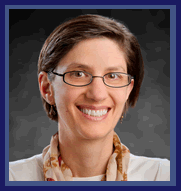But she IS doing a lot to help shape the policies and programs that may keep you from getting sick in the first place.
Bauer works at the Centers for Disease Control in Atlanta, Georgia, where she’s head of the National Center for Chronic Disease Prevention. She was in Sitka this week (6-26-13) to visit SEARHC and to assess the impact of the $2.4-million the CDC grants to prevention programs like Women’s Health, cancer screening, tobacco cessation, and diabetes prevention.
Bauer stopped by KCAW to share her ideas on disease prevention. Her first goal: To frame the conversation about health around people, rather than around disease.
People want to be in control of their health. They might not talk about health specifically, but they want a quality of life. They want to live to see their grandchildren grow up. They want to be productive members of their community. The don’t think about that in terms of diabetes or tobacco use or nutrition, but those things — or avoiding those things — are going to get them the quality of life that they want.
Bauer says that public health in the US had some amazing successes in the last century: potable water, sanitation, pasteurization and food safety, and quality housing. But lately, just as medicine has become more specialized, efforts to address public health issues have become more fragmented.
Bauer says it’s time again to step back and look at problems holistically.
One of the things that we’re realizing in public health is how many aspects of the community touch health. How much has to really support the well being of the individual and the community — it’s education, housing, transportation, the justice system, the behavioral health system, the clinical medicine system. It’s everything in the community that needs to be supporting health as a goal. When we can get all those partners aligned and working for the same thing, we can really help people in making that healthful choice.
Although the CDC-funded programs at SEARHC often involve a one-on-one interaction between a provider and a patient or client, Bauer says this relationship is not where she directs her energy. Her role is to help shape policy, and create the environment for better health. She wants to take down disease like fluoridated water took down cavities.
What we see is that in so many places our communities are designed for disease. I like to say that if a space alien came down to any place in our country, it would think that we support obesity as our highest value, because of all the ways that we promote obesity. The ready availability of fast foods, the soda pop within an arm’s reach of every American, the driving culture, the lack of opportunity for physical activity. And we didn’t really decide as a society or a community to make that happen; it evolved over time as the obesity epidemic evolved over the last 30 years or more. And I think more and more communities are kind of stopping and saying, Wait a minute — who decided that there should be a fast food restaurant within 4-minutes of every American home? Is that a value that my community wants, or do we want a different kind of value? Through grants like the Community Transformation Program we’re asking those kinds of questions — what kind of community do we want, and how do we need to get organized to build that for ourselves?
During her visit to Sitka, Bauer also dropped in on the SEARHC clinic in Kake, and had lunch with community elders. Her purpose was to learn how the Centers for Disease Control can better support Alaska Natives.
After Sitka, she was scheduled to travel to Oregon to meet with the Northwest Portland-area Indian Health Board.































